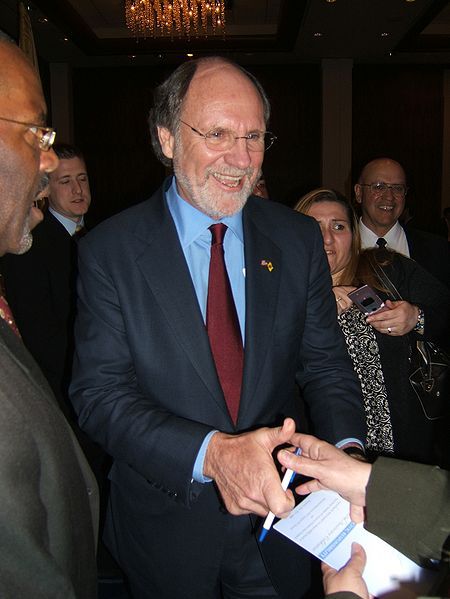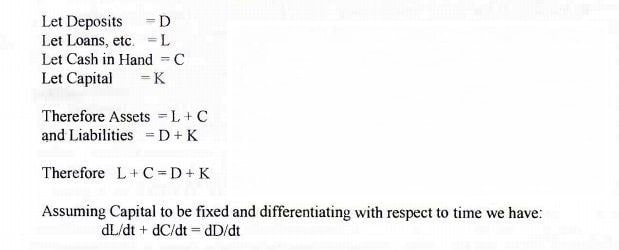
Jon Corzine.
The second episode of this short BBC TV series covers the fall of M.F. Global. It also contains two strikingly misleading claims.

Jon Corzine.
For those who can receive it, Bankers is currently on BBC iplayer, but if you miss it, look out for it on YouTube. A review of the first episode can be found here. This episode is called Risking It All, which is what they did, and lost it all, but who was it who was left to pick up the tab?
The central character in this programme is Jon Corzine, who was Governor of New Jersey from 2006 to 2010. In April 2007, he was involved in an horrific car crash, and was lucky to escape with his life. Four years later, there were those who wished he hadn’t. After leaving politics, Corzine took up the position of CEO of MF Global, a London-based firm that had roots going back to 1783. He was at the helm from March 23, 2010 until November 4, 2011, when this once successful company was flushed down the tubes. How did he manage to torpedo it virtually single-handed? The same way Kweku Adoboli did, he gambled big, and lost.
Let us be absolutely clear about this, what traders do, brokers do, “investment” bankers do, is gamble. They move money from A to B, from B to C, and from C back to A again, hoping to buy low and sell high. Common sense alone dictates that not everyone can do this. The analogy has been made of a game of musical chairs; when the music stops, someone has lost his seat and will be booted out of the game. Guess who picks up the tab?
Although this documentary is very informative about the players, it makes two clearly misleading statements:
A) This is what capitalism is all about.
B) Banks lend money.
The first statement is easily refuted; capitalism is what that bloke Sugar does. It’s what the strangely hated Google does. Capitalism is about investing: building companies, researching and developing new products; distributing these products, and services, to consumers. A manufacturer, a supermarket, a restaurant...these are engaged in capitalism. Banking is a service, but so-called investment banking is gambling, pure and simple, it involves shuffling bits of paper, nothing more.
Now here comes the big one, at around seventeen and a half minutes into the programme, the viewer is told one of the fundamental functions of banking is taking money in as deposits and lending it out as loans. No, that is not what happens at all; it is not the spare money that is loaned out. How can the BBC, how dare it, perpetuate this fiction?
Banks do it is true act as strongrooms for depositors – including in the virtual world – but they do not lend money. Major Douglas explained the technique of a bank loan way back in the 1920s. A short summary of this technique can be found here and here (at page 5). Below is the mathematical proof, but the bottom line is that when a bank issues a loan it creates credit, which is usually written to a new, dedicated overdraft or loan account as $x or whatever to the lender, who then withdraws it. This new money is at some point paid into another bank, increasing the money supply to that extent; as the loan is ‘repaid’, this new money is cancelled out of existence leaving only the interest as an increase in the money supply (and debt).
Unless and until this so fundamental point is grasped by our overpaid economists and most of all by politicians, there can be no meaningful progress in the establishment of a sound financial system, which should be based on, if not purely Islamic principles, then on what John Tomlinson called honest money.
The bottom line is that if banks can create money ex nihilo and sell it to governments, governments can do it themselves, debt-free. They have done this at times when forced into it – at the beginning of the First World War, for example – and they must do it again.
As for all the “bad loans” the banks made which led to the crash, our governments should leave them to pick up the tab for a change. We are told here that nearly 3 trillion dollars was lost during the crash, but was this really the case? If you leave your wallet on the kitchen table and the dog eats it, you can say you have lost $x, but the money the banks “lost” is still there, albeit in somebody else’s pockets.
[The above review was first published May 10, 2013.]
Return To Site Index

This is the ‘Douglas Money Equation’ as formulated by Major C.H. Douglas (1879-1952).